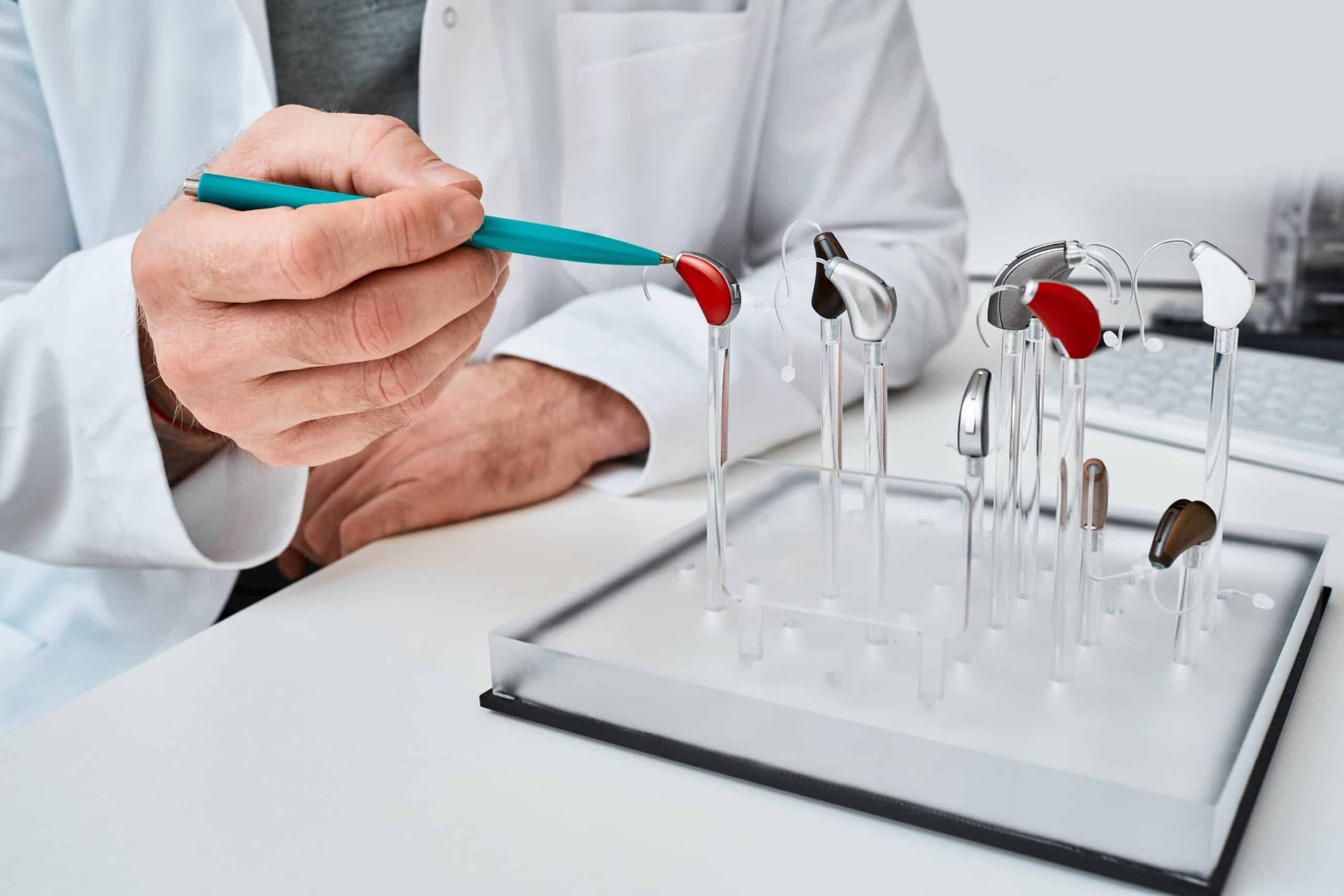
In this rapidly evolving field, innovations are changing the landscape of hearing solutions, enhancing both performance and user experience. Whether you’re exploring options for the first time or seeking to upgrade your current devices, staying informed about the latest trends can empower you to make the best choices for your hearing health! So what new trends can you expect to see in hearing aid technology this year and beyond?
Rechargeables
- Reduced waste
- Effortless charge-and-use simplicity
No dealing with used disposable batteries, eliminating the need for removal and replacement
As more hearing aid manufacturers provide rechargeable alternatives for their devices, it’s only a matter of time before these become the go-to choice. While the tiniest in-ear hearing aids might not be universally offered in rechargeable designs just yet, keep your ears open. A groundbreaking innovation could be on the horizon!
Telehealth
In response to the unprecedented global health challenges of recent years, adaptation and innovation have taken the forefront. A prime example? The surge in telehealth or video-based patient-provider consultations. While telehealth was used occasionally before the pandemic, its prominence skyrocketed as digital platforms and companies stepped up, introducing apps and enhanced systems to ensure healthcare accessibility amid lockdowns, quarantines, and distancing measures.
A federal study examining Medicare healthcare access highlighted a remarkable surge in patient participation in telehealth during the pandemic – from an estimated 840,000 in 2019 to a staggering 52 million in 2020. This reflects an astounding 38-fold increase from pre-COVID levels. As both consumers and the industry embrace telehealth as an invaluable option for effective patient-provider engagement, it’s evident that this approach is here to stay.
OTCs
You might have come across the term “over-the-counter” (OTC) hearing technology, a novel category of devices regulated by the U.S. Food and Drug Administration. These devices are approved for individuals aged 18 and above who perceive mild to moderate hearing loss, providing a fresh avenue for individuals to address their hearing health concerns.
The positive aspect? OTCs could motivate more individuals to confront their hearing loss, a pressing global issue predicted to impact around 700 million people of all ages by 2050. Nevertheless, it’s essential to note that self-managing hearing problems with OTC solutions, rather than seeking guidance from licensed hearing care professionals, might lead to either inadequate or excessive treatment. Hence, undergoing a comprehensive evaluation prior to making decisions on hearing solutions remains crucial.
Rising Concern of Noise-Induced Hearing Loss
The risk of hearing loss is growing due to excessive noise, affecting preteens through people in their mid-thirties. Why is this so? Engaging in popular activities like using personal media players, going to nightclubs, cheering on sports events, and relishing concerts can be thrilling experiences but are equally taxing on the ears—especially when noise levels surpass the critical limit of 85 decibels. Noise-induced hearing loss is a highly preventable form of hearing damage. Implementing a few straightforward strategies can put a halt to this detrimental trend:
- Limiting exposure time to loud sounds
- Wearing top-notch hearing protection tailored to your ears
- Adjusting the volume to lower levels on personal audio devices
- Maintaining vigilance over your hearing health by undergoing regular check-ups
Device Connectivity and Artificial Intelligence
From streaming your favorite TV shows and music to handling phone calls and catching up with morning radio talk, the ability to seamlessly channel sounds into your hearing aids is nothing short of remarkable. These devices essentially double as headphones, allowing you to immerse yourself in the auditory delights you adore – all wirelessly. What’s more, user-friendly apps make it a breeze to manage your hearing technology directly from your smartphone.
In the realm of hearing aids, AI is poised to assume an increasingly prominent role, enhancing convenience and empowerment for users. Some hearing aid models already possess the ability to monitor brain and body health, identify instances of falling, and provide real-time language translation to bridge communication gaps. As technology advances, anticipate a broader array of AI features to enrich the hearing aid experience even further.
Schedule an appointment with us today!
Interested in learning more about hearing technology and implementing it into your daily life? Set up an appointment with one of our hearing care providers! We provide hearing evaluations and hearing aid fitting services to help you feel more knowledgeable about your hearing health.
- Contact us to schedule an appointment!
